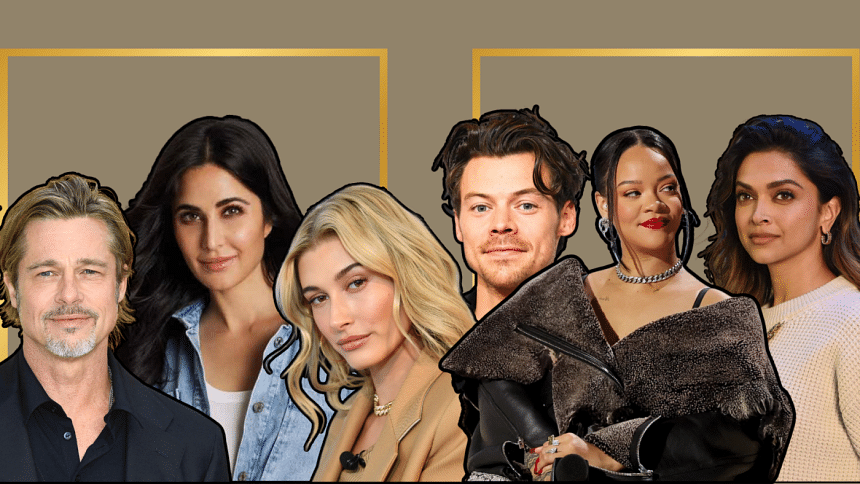Has the era of celebrity-owned brands come to an end?

Scroll through any beauty retailer or Instagram ad today, and chances are you will stumble across a celebrity-owned brand. From skincare and makeup to fragrance, supplements, and now even homeware and tea, the list keeps growing. Over the past few years, it feels like nearly every actor, singer, or influencer with a solid fan base has released a product line inspired by their personal journey.
But the trend seems to be losing its sheen. Many of these brands struggle to sustain momentum beyond the launch hype, and consumers appear increasingly disinterested. The question now is: are we simply tired of the concept?
The celebrity beauty brand boom really kicked off post-2020, accelerated by a combination of pandemic-induced career pauses, the rise of the creator economy, and direct-to-consumer marketing models. Celebrities, like many others, were rethinking income streams. Investors, seeing built-in audiences and high margins in wellness and beauty, were eager to back these ventures. And so began a wave of celebrity brands entering the market at record speed.
The numbers are hard to ignore. Since 2021, we have seen launches from Scarlett Johansson (The Outset), Hailey Bieber (Rhode), Brad Pitt (Le Domaine), Harry Styles (Pleasing), and even Jared Leto (Twentynine Palms). Some were more experimental, like Alicia Keys' spiritual wellness brand (Keys Soulcare), while others, like Billie Eilish's fragrance line, tried to blend personal aesthetic with product appeal. But not all of them landed. Many of these brands generated attention at launch, helped by PR packages, influencer seeding, and massive fan interest, but struggled to build long-term consumer trust or repeat sales.
Take Item Beauty by Addison Rae. It launched in 2020 with Sephora backing and TikTok hype, but quietly disappeared from shelves by early 2023. Similarly, Florence by Mills, founded by Millie Bobby Brown, still exists but has lost much of its initial buzz and shelf presence, with growing criticism about product quality and value. Even legacy players have not always had it easy. Jessica Alba's Honest Beauty, once positioned as a clean beauty trailblazer, has scaled back significantly and now occupies a very specific niche within drugstores, rather than maintaining a cultural presence. Kylie Jenner's Kylie Skin and Kylie Baby have experienced a slowdown in growth, despite the initial success of Kylie Cosmetics. Kim Kardashian's SKKN had a high-profile launch but has not quite replicated the reach of her earlier beauty lines.
So what changed? Why are we, as consumers, pulling back?
It is partly due to market saturation, and new brands often fail to differentiate themselves. Many of these celebrity-owned brand lines offer similar messaging: clean, vegan, cruelty-free, sustainable, and "authentically me." So if everyone is launching minimalist packaging with a focus on hydration and wellness, none of it feels particularly new. Secondly, consumers have become more skeptical. With greater access to information, beauty buyers today are better educated about ingredients, formulation science, and brand transparency. Dermatologists, cosmetic chemists, and skincare influencers are now major voices in the industry, and their reviews carry more weight than a celebrity endorsement. When Hailey Bieber launched Rhode, it generated buzz, but also immediate scrutiny. Her peptide glazing fluid was compared side-by-side with existing products, and people wanted to know what made it different beyond the branding.
There is also a generational shift. Gen Z consumers are articulately skeptical. They value authenticity over aspiration and tend to favour brands that are rooted in expertise, transparency, and community. That is why brands like Paula's Choice and CeraVe are gaining traction. Many consumers now ask: Is this something the celebrities use? Did they actually work with labs and chemists? Or is it private-labelled with their name slapped on? In some cases, the answer is obvious. For example, Le Domaine, Brad Pitt's genderless skincare brand, boasts vineyard-sourced antioxidants from his French winery, retailing at $130 for a serum. The concept was met with skepticism, particularly because Pitt has rarely spoken publicly about skincare, and the high price point alienated most buyers.
Contrast that with brands like Fenty Beauty by Rihanna, which succeeded not because of celebrity power alone, but because of a genuine product gap it filled: inclusivity. When Fenty launched with 40 varieties of foundation shades, it disrupted an industry that had long ignored deeper skin tones. Similarly, Rare Beauty by Selena Gomez positioned itself with a strong emphasis on mental health and everyday wearability, resonating with younger audiences. These brands have staying power because their success is not solely dependent on the founder's fame, but also offer strong products with distinct identities.
Closer to home, India has its own set of stars jumping on the brandwagon. Katrina Kaif's Kay Beauty was one of the first celebrity beauty brands to actually perform well in India. But that success also owed a lot to its partnership with an established beauty marketplace and a sensible pricing model. On the flip side, Deepika Padukone's 82°E, launched with sleek packaging and minimalist branding, has faced some criticism for high price tags and vague product benefits. Then there is Anomaly, Priyanka Chopra Jonas' haircare brand. Launched in the US and then in India, it emphasised sustainability and affordability. It received fairly decent reviews and is priced modestly. But even that could not protect it from the saturation of celebrity beauty brands flooding the market.
So are we tired of celebrity brands? Not completely, but our expectations have changed. Fame alone is no longer enough. Consumers want thoughtful products, clear positioning, and founders who care about what they are selling. The era of "slap a name on it and it will sell" is over. Going forward, only a few celebrity brands will likely survive the tightening consumer filter. And maybe that is a good thing. The market does not need more of the same products. It needs better.

 For all latest news, follow The Daily Star's Google News channel.
For all latest news, follow The Daily Star's Google News channel. 





Comments